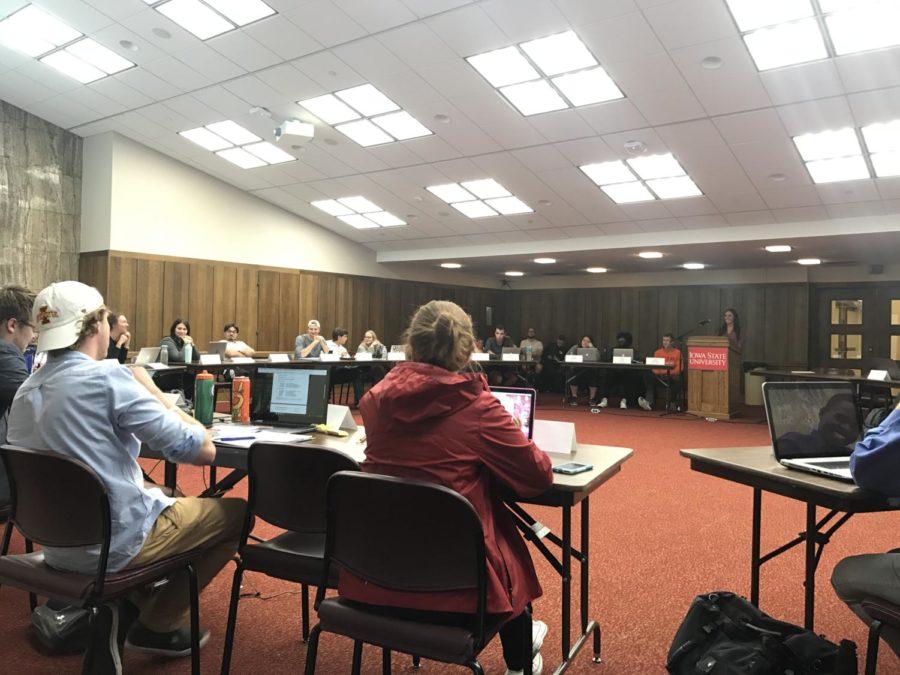- App Content
- App Content / News
- News
- News / Politics And Administration
- News / Politics And Administration / Campus
Senate hears presentation on textbook affordability, open educational resources
Monica Pietig stands at the podium during Wednesday evening’s Student Government meeting before being confirmed as Supreme Court Chief Justice.
October 4, 2017
Parks Library representatives presented to Student Government Wednesday, touching on ways to advocate for open access information and textbook affordability.
Abbey Elder, open access and scholarly communication librarian, discussed the current climate of textbook affordability and what impact that may have on students.
“Let’s look into background on this: How expensive are textbooks?” Elder said, citing an 88 percent increase in textbook prices in the past 10 years.
Elder noted current campaigns to address textbook prices, including #textbookbroke on Twitter as a platform to discuss alternative ways money spent on textbooks could be allocated, such as on gas or groceries.
Alternatives Elder proposed — and the main topic of the program — was open educational resources.
Open educational resources solicits “teaching and learning materials that you may freely use and reuse at no cost, and without need to ask permission,” according to its website.
“So, why don’t we already use open educational resources?” Elder said.
She noted that many professors are unaware that options such as this exist, as well as low subject availability in areas such as design, agriculture and the humanities.
There is also a time requirement for professors to create new open educational resources, Elder said.
Curtis Brundy, associate university librarian for scholarly communication and collections, presented alongside Elder, expanding on ways Student Government can specifically get involved.
This included requesting that Iowa State join the Student Public Interest Research Groups, the Open Textbook Alliance and the Open Textbook Network.
He asked that the senate consider passing a resolution expressing interest in bringing open educational resources to campus.
“We care about people having access to information,” Brundy said.
Questions posed by the senate to Brundy and Elder included whether or not they have posed open educational resources to the Faculty Senate and who on campus is already using this resource.
Brundy said they have not yet formally introduced it to the Faculty Senate.
As far as who uses it on campus, Elder said, they know of about four or five professors using open textbooks and a few using course reserves.
“Textbooks are a piece of low-hanging fruit we can have an impact on,” Brundy said.






